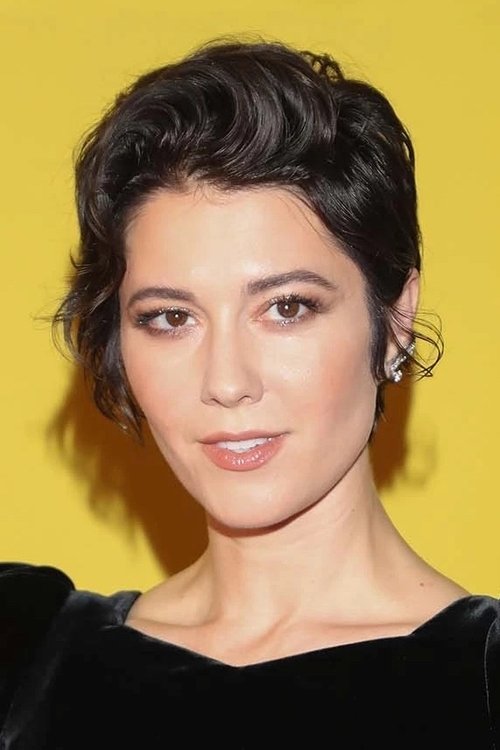Mary Elizabeth Winstead (born November 28, 1984) is an American actress and singer. Her first significant role came as Jessica Bennett on the NBC soap opera Passions (1999–2000) and she went on to appear in series such as Tru Calling (2004) and films including the superhero film Sky High (2005). She came to wider attention as a scream queen for her roles in the horror series Wolf Lake (2001–2002), the giant monster film Monster Island (2004), the supernatural horror film Final Destination 3 (2006), the slasher film Black Christmas (2006), and the exploitation horror film Death Proof (2007).
Further success came with her roles as John McClane's daughter Lucy Gennero-McClane in Live Free or Die Hard (2007) and Ramona Flowers in Scott Pilgrim vs. the World (2010). Her critically acclaimed performance as an alcoholic struggling with sobriety in the Sundance drama Smashed (2012) was followed by a series of roles in other well-received independent films, including The Beauty Inside (2012), The Spectacular Now (2013), Faults (2014), Alex of Venice (2014), and, Swiss Army Man (2016). Winstead continued her Scream Queen roles in the sci-fi horror film The Thing (2011), as Mary Todd Lincoln in the fantasy horror film Abraham Lincoln: Vampire Hunter (2012), and in the psychological horror thriller film 10 Cloverfield Lane (2016).
She reprised her role as Lucy Gennero-McClane in A Good Day to Die Hard (2013) and returned to television with roles in the supernatural drama series The Returned (2015), the political satire science fiction comedy series BrainDead (2016), the period medical drama series Mercy Street (2016–17) and the black comedy crime drama anthology series Fargo (2017). Other roles include the comedy drama All About Nina (2018), the action thriller Gemini Man (2019), and as the Huntress in Birds of Prey (2020).
To the INFP personality types life is a long quest for meaning and harmony and their personal values are so important to them. This means that it is essential to the INFP that their beliefs and their actions are totally in sync at all times. An INFP is unlikely to take any action which they don’t believe in their heart is right. Yet there is a crusading side to the INFP which would surprise even those who knew the person well. When a personal value, or belief is trodden on, then the INFP can become outspoken and turn on the transgressor. They are so private that their values are usually well hidden so that other people may not realise, but the INFP becomes like a champion of the cause and will be expressive, animated and at times go for the jugular.
The INFP has two contrary characteristics, curiosity and shyness. They love to know what's going on, feel excluded if not kept informed but prefer to be more in the background and not wanting to be the centre of attention. The INFP always wants to be invited to the party - even though the chances are they won't show up. There is a sensitive, caring side to the INFP which means they will be see the interconnections between people and pick up on the verbal and non-verbal cues.
Sensitive, caring and empathetic INFPs are excellent in supporting roles where people have to be looked after - especially if those people are close to the INFP. Because it can take so long (if ever) to get to know the INFP, others paradoxically may see them as slightly aloof, as they engage best when they have allowed someone into their inner sanctum. Optimistic and extremely positive, INFPs are the ultimate dreamers. Forward thinking and focused, they love the possibilities that life might bring.
An INFP does not like to be categorised. They value their autonomy, and feel 'different,' and any system, (including this one), which tries to 'define' or 'explain' them would be denigrated. The INFP would say, 'You can't put me in a box, I'm different,' indeed they would all say this. Optimistic and extremely positive, INFPs are the ultimate dreamers. Forward thinking and focused, they love the possibilities that life might bring. INFPs are extremely future oriented individuals who enjoy flights of fancy and savour potential and the many possibilities unlike their ISFP counterparts, who prefer to stop and savour the sensory, real experiences of “this moment” to the maximum. The ISFP will look down, immersing themselves in actual experiences whilst the INFP will always look up and forward, dreaming big dreams and loving the anticipation of what might come.
INFPs have the ability to see good in almost anyone or anything. Even for the most unlovable individual the INFP can have (often misplaced) empathy and even pity. Their extreme depth of feeling is often hidden, even from themselves, until circumstances see them project a seemingly uncharacteristic impassioned, and extraverted, response. Of course, life is not always harmonious, so INFPs are not immune from all of life’s problems, frustrations and disappointments that we all face.
However, they feel a duty to a higher calling, the greater good. So, although essentially idealists and extremely gentle individuals, INFPs, when their values are contravened, can adopt a more strident, crusading ESTJ type of role, to sort things out, which will surprise even close friends who have only seen the gentle, quiet soul. But then, once they’ve made their point, their energies will be depleted, and they will disappear back to their own, quiet, introverted world of possibilities and harmony, often questioning whether they should have been so harsh and worried that they haven’t either shown too much of themselves (always a concern for the extremely private INFP) or, worse still, that they might have caused hurt to someone, which is never their intention.
Choose another celebrity type to compare side by side the different approaches work, attitudes to conflict and the way they engage with others.
